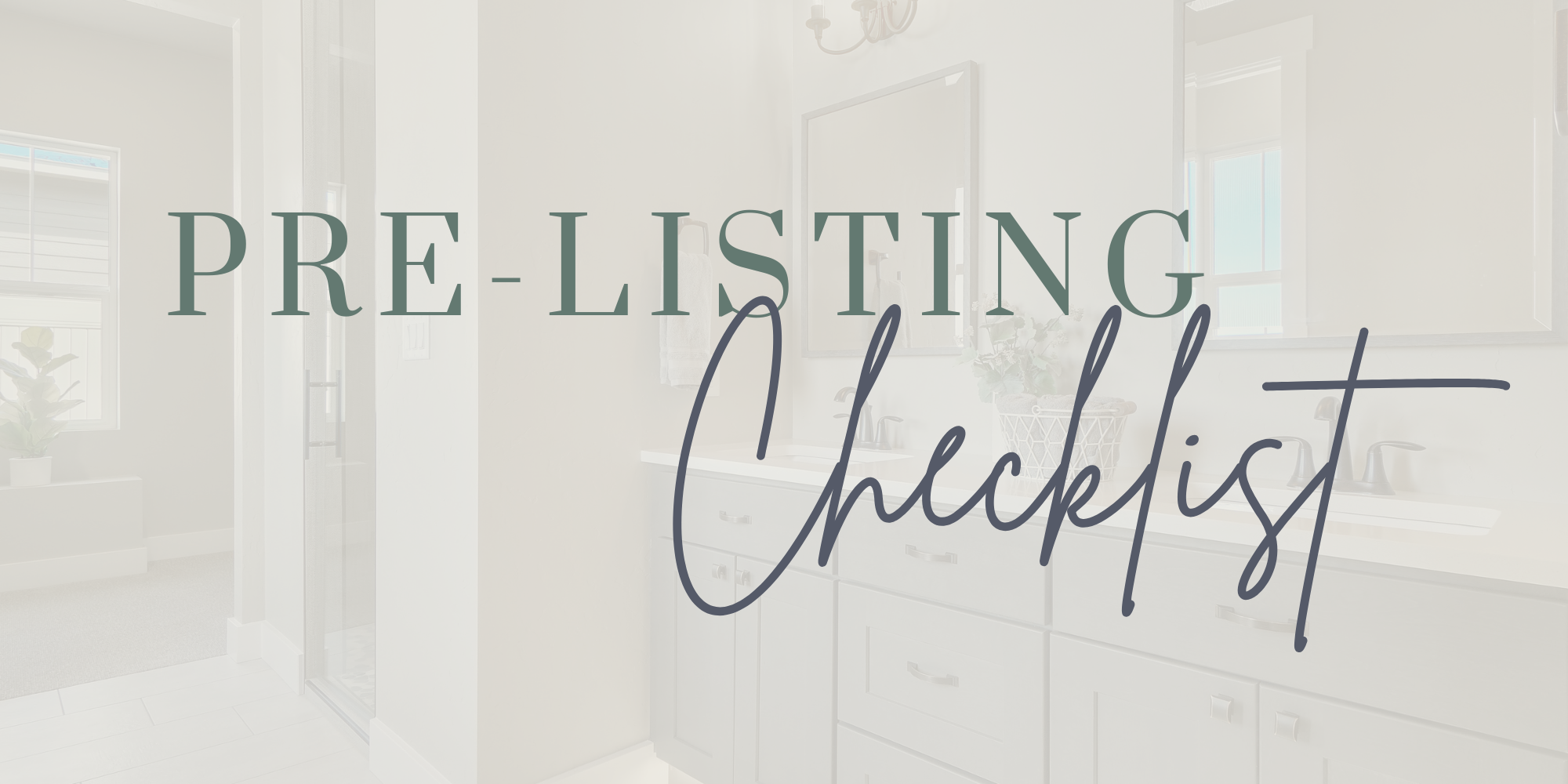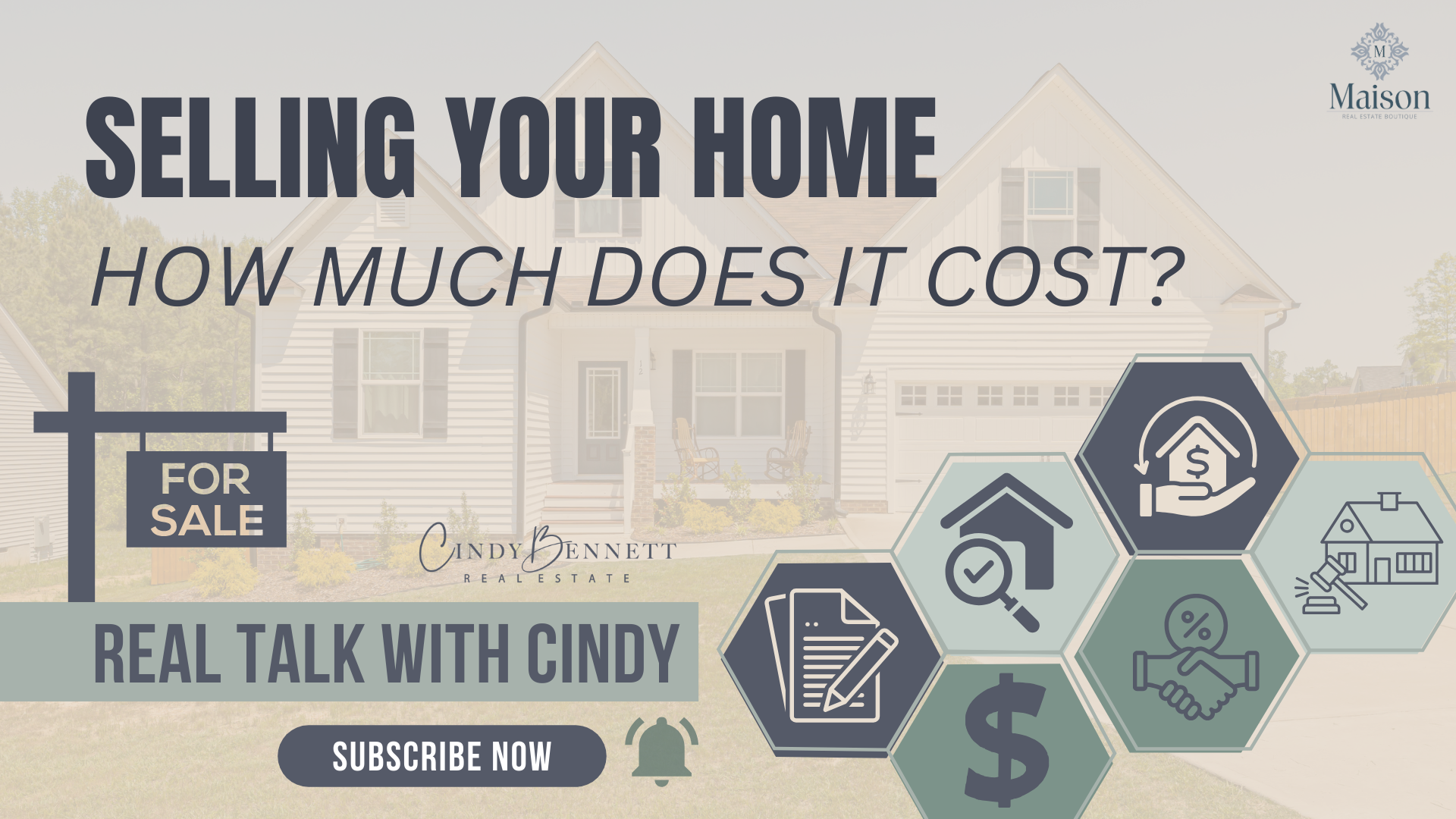Selling Your Home
Thinking of selling a home? The time to start the process is now (when you’ve just started thinking, rather than when you think you’re “ready”) Read up, or better yet, reach out, and get all your questions answered.

If you’ve been following real estate headlines lately, you’ve probably seen Richmond named as one of the hottest housing markets in the country. On the surface, that sounds like great news—but if you live here, you may be wondering what that actually means for you. Is it a great time to sell? Is it harder than ever to buy? And do those national rankings really reflect what’s happening on the ground? Let’s take a closer look at what buyers and sellers are truly experiencing in the Richmond real estate market. What the Headlines Are Really Measuring Most national rankings look at big-picture metrics like affordability, job growth, population increases, and price trends. In many cases, Richmond does check those boxes. We’ve seen steady job growth, strong demand, and continued interest from buyers relocating from higher-cost areas. But those statistics don’t always capture what’s happening neighborhood by neighborhood—or even street by street. Are Homes Still Getting Multiple Offers? Yes—multiple offers are still happening in Richmond, even during the winter months. And when multiple offers are happening in the slower season, it’s a strong indicator that demand remains high. That said, not every home is receiving the same level of interest. The listings that tend to attract the most competition usually share a few things in common: They’re well maintained and move-in ready They’re priced appropriately They’re located in desirable neighborhoods Classic Richmond colonials, especially those with garages, fenced yards, and neighborhood amenities, continue to be among the strongest performers. Not All Homes Perform the Same in a Hot Market As you move away from the most desirable locations or home styles, competition tends to soften. Homes near busy roads, in less walkable areas, or needing significant updates may still sell—but often without the frenzy suggested by the headlines. This is why a blanket statement like “Richmond is hot” can be misleading. Who Benefits Most in a Hot Richmond Market? The biggest winners tend to be: Sellers with well-maintained, updated homes Sellers in strong neighborhoods Out-of-state buyers relocating from higher-priced markets Buyers coming from more expensive areas may find Richmond homes relatively affordable, even when local buyers feel priced out. That can give them an edge in competitive situations. Strategy Matters More Than Ever for Buyers In a competitive market, preparation is everything. Buyers who succeed typically: Have strong pre-approvals Understand their true budget Know where they can be flexible Work with an agent who understands local competition A clear strategy can be the difference between winning and losing a home you love. Sellers Still Need a Pricing Strategy A hot market doesn’t mean you can price your home however you want. Pricing correctly is still critical to generating interest and multiple offers. Homes that are overpriced often sit longer—even in strong markets. Having the right pricing and marketing strategy is just as important now as it is in slower markets. Headlines Don’t Replace Local Expertise Richmond may be a hot housing market, but that doesn’t mean every buyer is doomed—or every seller is guaranteed success. Results depend on location, condition, price range, and strategy. If you’re thinking about buying or selling in the Richmond area, the best first step is a conversation about your goals and your segment of the market. If you have questions or want help creating a strategy that fits your situation, I’d love to help. Reach out anytime to get started.
Read more
Richmond’s Zoning Code Refresh: What It Means for Your Neighborhood, Home Value, and Future Plans Over the next several years, many Richmond neighborhoods could change in ways that surprise longtime residents and homeowners. Streets that have traditionally been made up of single-family homes may soon be allowed to include additional housing types, more density, and different development options than they do today. These changes are part of Richmond’s zoning code refresh, a citywide update aimed at addressing housing demand, affordability, and evolving urban living preferences. While the phrase “code refresh” can sound vague or technical, the potential impact is very real—especially if you own property, are planning to buy, or are considering selling or investing in Richmond. Let’s break down what this zoning update is, why it’s happening, and what it could mean for you. What Is the Richmond Zoning Code Refresh? In plain English, the zoning code refresh is the city’s effort to update long-standing rules that govern how land can be used and what types of buildings can be constructed. Many of Richmond’s zoning regulations were created decades ago, during a time when housing needs, transportation patterns, and population growth looked very different. The refresh is designed to: Allow for more housing options Increase density in certain areas Support long-term housing affordability Encourage smarter, more efficient land use Rather than focusing on large apartment complexes alone, the city is exploring changes that would allow more “missing middle” housing—the types of homes that fall between single-family houses and large multifamily developments. Why Is Richmond Making These Changes Now? Richmond’s zoning update is part of a much larger conversation happening across cities nationwide. Housing demand has increased, affordability has become a major concern, and many communities are realizing that older zoning rules limit their ability to adapt. Several factors are driving the code refresh: Housing affordability pressures at both local and national levels Growing demand for smaller, more flexible housing options Increased interest in walkable, urban neighborhoods Changing household needs, including multigenerational living In short, the city is trying to balance growth with livability—while acknowledging that doing nothing isn’t a realistic option. What Types of Changes Could We See? While the exact details, timelines, and neighborhood-specific impacts are still being finalized, some common themes have emerged. More Duplexes, Triplexes, and Small Multifamily Homes Areas that have traditionally been zoned for single-family homes may eventually allow duplexes, triplexes, or small multifamily buildings. This doesn’t mean every street will suddenly change, but it does mean more flexibility in how land can be used. Expanded Use of ADUs (Accessory Dwelling Units) Accessory dwelling units—often called in-law suites, carriage houses, or garage apartments—are becoming more common nationwide. Richmond’s zoning refresh may allow more homeowners to add ADUs where they were previously prohibited. These can be used for: Multigenerational living Rental income Guest or home office space Reduced Parking Requirements One of the lesser-known but impactful changes being discussed involves parking. Historically, zoning codes required a specific number of parking spaces for new developments. Reducing or eliminating some of these requirements can: Free up land for housing Lower construction costs Encourage walkability and alternative transportation The Push and Pull: Density vs. Neighborhood Character One of the biggest tensions surrounding the zoning code refresh is the balance between increasing housing and preserving neighborhood character. On one hand, many residents support: More housing availability More affordability Increased walkability and local amenities On the other hand, there are real concerns about: Traffic and congestion Parking availability Loss of architectural charm or historic feel These concerns are valid, and the city is navigating a complex push-and-pull between growth and preservation. It’s unlikely that every neighborhood will be affected in the same way, but change in some form is almost certainly coming. What Buyers Should Consider If you’re thinking about buying a home in Richmond, zoning changes add an extra layer of research to the process. Beyond evaluating a neighborhood as it exists today, buyers should also consider: How zoning flexibility could impact the area in 5–10 years Whether increased density could affect traffic or parking Potential changes to nearby properties or vacant lots Understanding future possibilities can help buyers make more informed decisions and avoid surprises down the road. What This Means for Sellers For homeowners considering selling, the zoning code refresh could present opportunities. Increased zoning flexibility may: Expand the pool of potential buyers Attract investors or builders Increase a property’s development potential Sellers who understand their property’s current and future zoning may be able to position their home more strategically—especially if redevelopment or expansion becomes more viable. Opportunities for Investors Real estate investors are watching Richmond’s zoning changes closely. More flexible zoning can open the door to: Duplex or triplex conversions Small multifamily development ADU additions for rental income For investors, understanding what may be allowed in the future is just as important as what’s allowed today. What Homeowners Should Do Now Even if you’re not planning to buy or sell anytime soon, staying informed is critical. Homeowners should: Follow city planning updates Attend community meetings when possible Learn how zoning changes could affect their block Understand both risks and opportunities Change doesn’t happen overnight, but early awareness allows for better long-term planning. How I Can Help Zoning changes can feel overwhelming, especially when the details are still evolving. If you’re curious or concerned about how Richmond’s zoning code refresh could affect your neighborhood, property value, or future plans, I’m happy to help. I can share what information is currently available, help interpret how it may apply to your situation, and point you toward additional city resources when needed. Reach out anytime to start the conversation. If you’d like next: A shorter “owner-friendly” version of this post A seller-focused zoning blog A developer/investor breakdown Or an email newsletter version Just let me know 👌
Read more
Selling Your Home in Richmond, VA This December? Top 5 Tips for the Holidays Thinking about selling your home in Richmond, Virginia this December but worried it will sit on the market during the holidays? You’re not alone—but the truth is, serious buyers don’t take the holidays off. In fact, selling during the winter months can sometimes work to your advantage, especially in Richmond’s competitive real estate market. In this video, I share the top 5 tips for selling your home during December and the holiday season, including: 1️⃣ December buyers are more motivated – Serious buyers are actively looking, not waiting for spring.2️⃣ Less competition can help your home stand out – Fewer listings mean more visibility for your property.3️⃣ Holiday pricing strategies – Setting the right price is key to attracting motivated buyers.4️⃣ Staging and showing your home in winter – Make your home inviting without going overboard with holiday décor.5️⃣ Why waiting until after the holidays can cost you – Delaying your listing can mean missed opportunities and lost time. Whether you’re selling in the Fan District, Short Pump, or Midlothian, these tips are tailored for Richmond homeowners who want to sell quickly and confidently during the holidays. 📞 Ready to sell your Richmond home this winter? Contact me today to discuss your options and get a personalized home-selling strategy.
Read more
If these (hopefully) final days of winter and snow are keeping you more stuck inside, there are lots of things you can do get your house ready to sell if that's on the horizon for you! I'm including my checklist here, but a couple of other tips I have- Set a timer for each room. Do as much as you can in that time period with no distractions. (Reset if you need to, but setting a time limit really helps me focus better and that task doesn't yawn endlessly before me!) Do a "blue tape walkthrough" for your house- just like we do with new construction to note areas for the contractor to come back to. Better yet, have me (or a good friend with an eagle eye) do it. This will help you get your list together of projects to do before selling- things like that jiggly towel bar, the outlet that doesn't work, the paint and caulking touch ups... then call me for my vendor list, or reach out to the folks you've worked with before who can help you! Check out the downloadable checklist below and see what you can accomplish! Click HERE or the image above to download.
Read more
Let's discuss my top 10 questions to ask a potential listing agent when choosing someone to list your home. What is their experience and/or familiarity with the area where your home is located? What is their listing experience? What is their level of understanding of the forms and legalities? Are they personable? What is their marketing strategy? How well can they negotiate? How will they handle everything from contract to closing? What do you as the seller need to do? How do they communicate? Do they "play well" with others (agents, buyers, etc.)? Have questions? Ready to talk real estate? Send me a message via Instagram at CindyBennettRealEstate or here on my website.
Read more
Everyone wants your home. At least that's what Google would have you believe. If you're thinking about selling your house, and you go on the good old Google and type in "home selling" or anything that sounds remotely like that, you're going to get a whole page of different companies. In most cases, it's not going to be great agents that could help you sell your home or a "how-to" guide. For the most part, you will get a page or two of companies that want to purchase your home for "market value" and so easy with no realtor. So a lot of these companies will tell you to just enter your address and they will make it so easy for you. You don't even have to clean. We'll come in and buy your house for market value. We'll close quickly, and then you know, you can move on with your life. For a lot of people, in a lot of financial situations, that can sound so appealing, but there are, with a lot of these companies, so many hidden fees. So if you're looking at doing that, make sure that you ask your questions. I would also encourage you to call a realtor that you trust that can look at all of that documentation and tell you if it is truly market value, or if you could, with just a little bit of effort, make a good amount of money more than those people will pay you, because in most cases, they're going to pay you less than market value. They're going to do very minimal repairs or painting, things like that and then they're going to put it back on the market for considerably more than they're going to pay you for your house. So while I don't have any problem with people making money, and sometimes, you know, you just need to get out and move on, I get it, but make sure that you understand the market and understand exactly what their fees are, because a lot of these companies do charge a good amount of fees, and in many cases, they're gonna get a home inspection and ask you to pay for repairs before you close. These things often show up when you are too far into the transaction to back out. So proceed with caution, when you're looking at a lot of these companies that come up when you're thinking about selling your home because nobody is giving you a free lunch, and if they're going to come in and make the deal super easy, they're going to get something from you in return. The next thing you'll see on Google are going to be lots of companies telling you that they can connect you to a great agent in your area. Keep in mind that in most of those cases, they are then going to get your information and sell it to an agent. In many cases, that agent will have to pay them 30%/40%/50% of the commission that they earn. I will also say in those cases, the vetting process is not always great. Sometimes it is not the best agent in your area. It's the agent who answered the text message saying we've got buyer leads or seller leads in your area."Do you want them? You just have to pay us a referral fee." Sometimes great agents respond to those, and often not great agents respond to them. So make sure that you're doing your due diligence, and don't just click on the first link that comes up on Google, because I can guarantee you it is not going to be the best thing for you. Do your homework. Give me a call. I'm always happy to read through information. Give you a little bit of advice if you're trying to figure out the best route to go. And I'll be honest, if somebody is going to give you a great deal on your house and you don't have to do anything for it, I'm going to tell you to take it. But in most cases, there's something else lurking behind there. So just, not only buyer beware, seller beware.
Read more
How much does it cost to sell a home anyway? The easiest answer to that, as in real estate often, is it depends. It depends on the house, the market, and a whole bunch of things. Below are some of the most common expenses (and their general associated cost) that you will see when you go to sell a home. Commission: This will be whatever has been negotiated in your listing agreement and/or purchase agreement. This is usually going to be your biggest chunk (aside from your mortgage payoff if you have one). Pre-Listing Expenses: Your Realtor® (hopefully me) will likely recommend you do a few things to get your home ready for market. This can be as simple as a new doormat or paint, but depending on your ability and willingness could be redoing floors or larger maintenance fixes. On average, you can usually expect to pay between $2k-5k. Attorney/Title Fees: Whether you are using a title company or attorney to handle your closing you will of course have to pay them. This is usually between $600-800. Sometimes a little less, sometimes a little more. Property Taxes: These are going to be prorated, so if you have just paid, you're going to get some of that back for the time after you've closed. If you haven't paid, you can rest assured that they're going to be on that settlement statement to be paid at closing. Grantors Tax: In Virginia, you will also have to pay this tax at closing. It is generally about 1% of the sales price of the home. That will get split between the city, county, state, etc. as essentially a "transaction fee" to the different government municipalities. Mortgage Payoff (if applicable): Most people will have a mortgage payoff at closing. This will also include any additional mortgages, home equity loans, etc. that you may have taken out over the years. Additional Fees: Your last fees are going to be those courier fees and wire transfer fees for those payoffs. Your lender and closing company are going to make sure that that payoff is up to the minute and to do that, they're going to put a rush fee on there. Generally, that will be between $200-300. All in all, when you go to sell your home, the largest chunk of money that you're going to spend is usually going to be in commissions and/or repair costs. Everything else is going to be, in most cases, between $1k-2k tops. So if you're thinking about selling and you want to know what your numbers shake out like, give me a call or send me a message. I'd love to talk to you and help you see if selling now or selling later makes more financial sense to you and to see where the numbers fall, so you have a good, accurate depiction of what the end of the day is going to look like and what you'll walk away with.
Read more
Are you nose blind to those smells in your home? You may not want to put your house on the market until those smells have dissipated. Let's talk about how that may affect the sale of your home and what you can do to fix it. Have questions? Ready to talk real estate? Send me a message via Instagram at CindyBennettRealEstate or via my website www.cindybennett.net.
Read more
With the NAR Settlement and changes to the real estate industry, you may be wondering if you can just sell your house yourself. Why do you even need a Realtor®? Technically, you don't, but before you make any decisions you may want to think about why it may not be the best idea.
Read more
How do you sell a house if you still have a mortgage on it? A lot of people have this question and it's understandable because most people have a mortgage on their home. The good news is you don't have to have completely paid off your home to sell it. So here's how it works. When you go to sell your home, you have to continue paying your mortgage. Once you accept a contract on your home and you get closer to closing, what are the things that your closing agent, whether it's a title company or an attorney's office is going to do is make sure that they have a payoff for the date of closing. So let's say, for example, you're going to close on July 10. They're going to get the payoff of your mortgage effective July 10. When the buyer brings their money to closing, however, they do it, that money gets paid off to your mortgage company, so you are now free and clear. What's left is what you get, but also what goes to pay your transfer taxes, et cetera, et cetera. Long story short, your mortgage gets paid off by your settlement agent effective the date of the closing. Now, one of the things you may not even think about until you're going through that whole process is the escrow account you set up when you first bought your house. From that escrow account, your taxes on your home, and homeowner's insurance get paid. So usually they have a buffer in that escrow account so that you don't have to get an updated mortgage payment every time the tax rate goes up, or your insurance goes up. The buffer amount depends on your escrow account, your individual circumstances, and how much is left in that. The leftover amount gets mailed back to you from your mortgage company and it usually takes about six weeks. Sometimes you need to check with them because as you probably know, nobody likes to give up money very easily. So make sure that you're looking for that check once you've moved and that they have your updated address so that it doesn't go to your old address. So if you're thinking of selling, you want to sell your home and you're wondering if you can even do that because you still owe money on it, yes, you can. Give me a call. Let's talk about it. Look at that whole scenario and figure out what you need to get your home sold. Give me a call, send me a message, and let's get talking.
Read more


